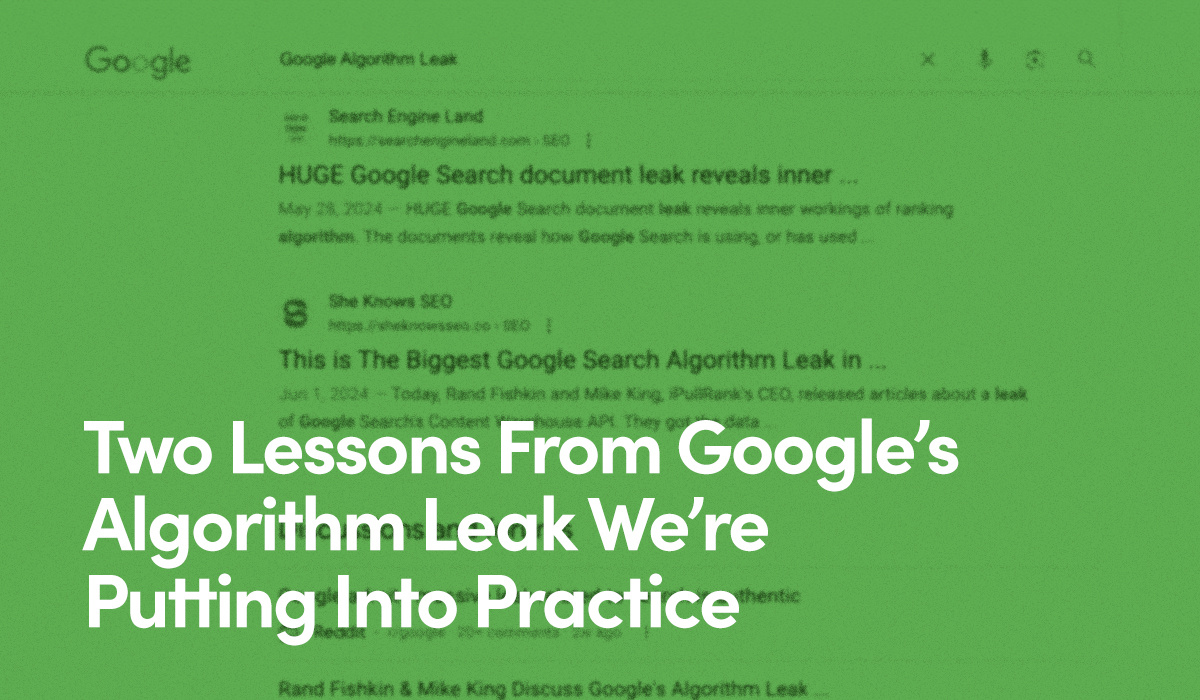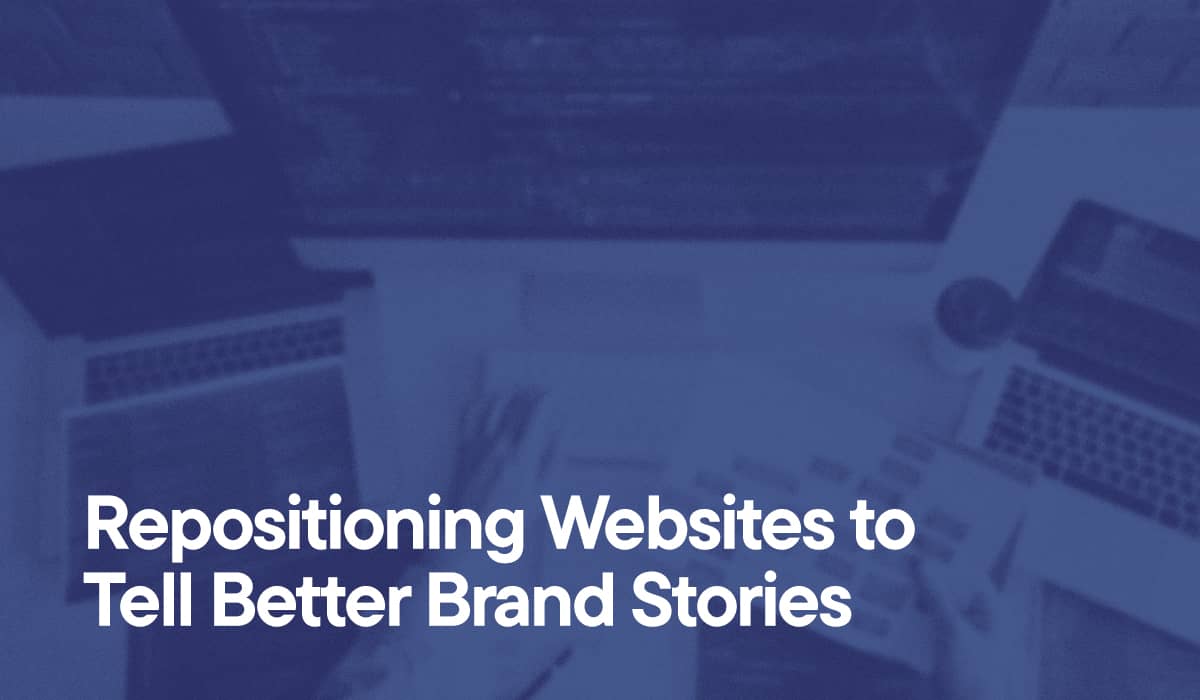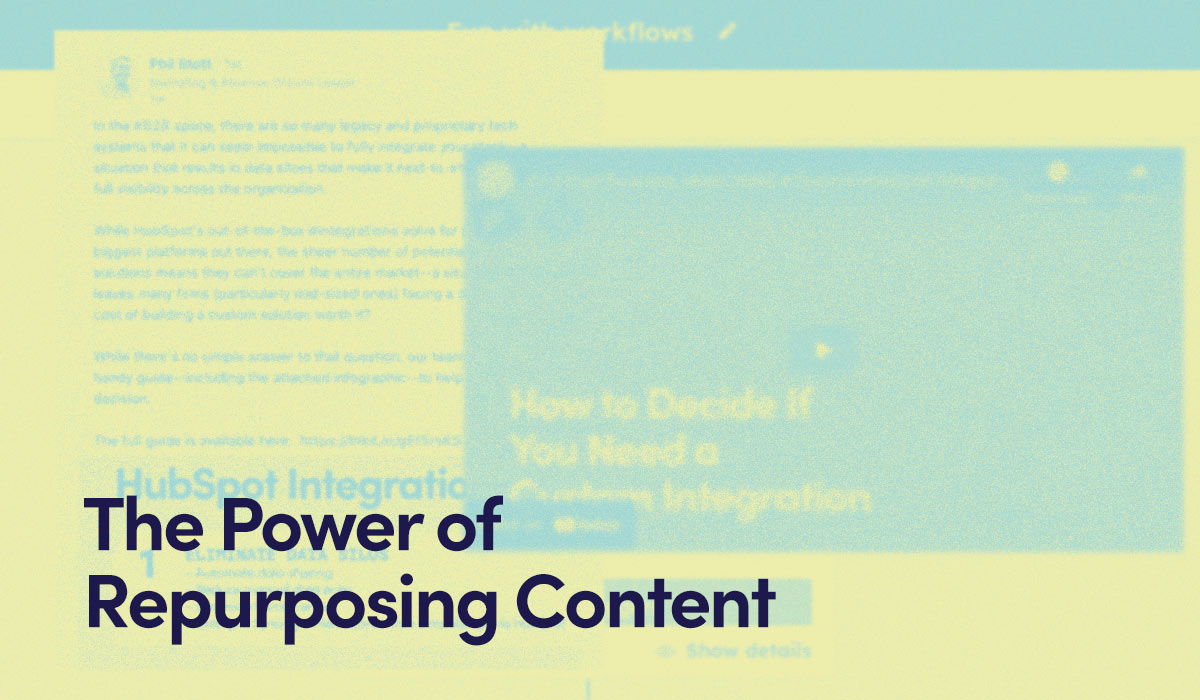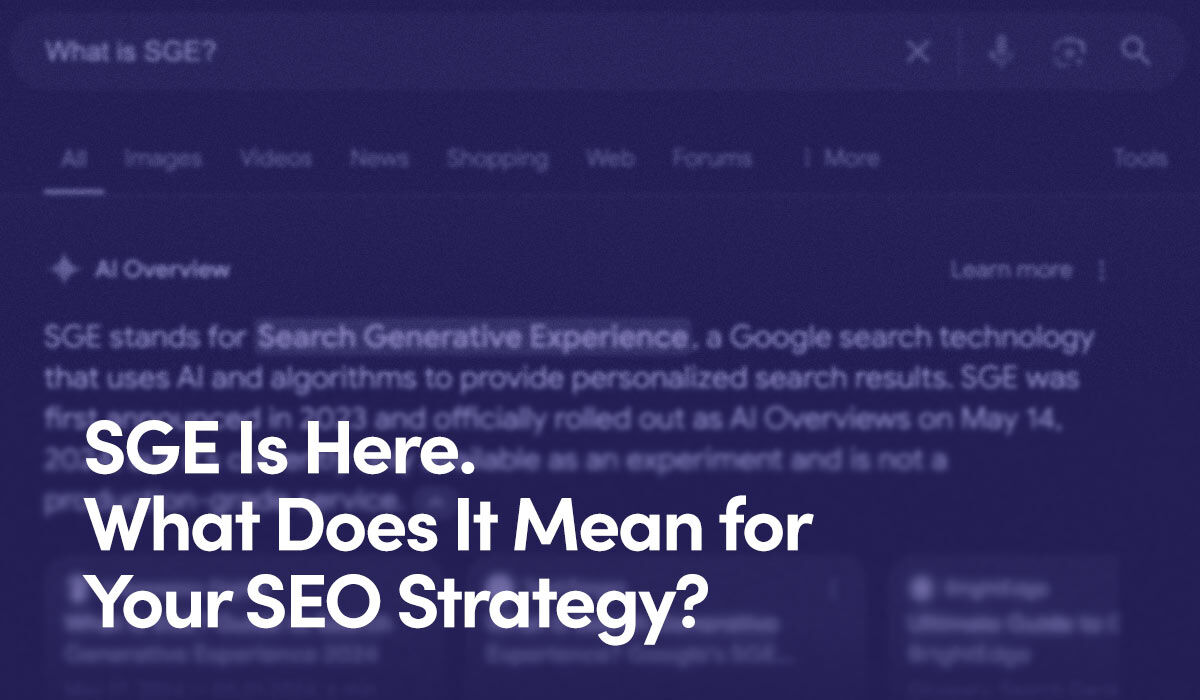As an agency that serves B2B clients, a lot of our work—and our clients’ success—lives and dies by the Google algorithm.
So when news emerged recently that the algorithm had accidentally been posted to a public website, we sat up and took notice—along with every other SEO practitioner on the planet. After all, fortunes have been built and lost on the ability to understand and reverse-engineer the famously complex, opaque, and ever-changing system that delivers Google’s best guess at the information that will satisfy each of the 8.5 billion searches performed on its site every single day.
(That figure includes “How many Google searches per day,” which I used to find and source the stat in the previous sentence—a process that took under 30 seconds from start to finish. As someone old enough to remember life before we had instant access to almost every fact on earth, it’s easy to forget how magical this kind of experience truly is.)
With so much at stake, SEOs have been eagerly poring over the data dump to try to find their next edge—any insight they can gain to help them get their site to the top of the rankings for the terms that are likely to be most important to the potential customers and readers they want to bring in.
At Hypha, we’ve long held that the search for SEO hacks is somewhat self-defeating: no sooner have you re-tooled your site for the latest can’t-miss strategy—along with every other SEO out there—than Google pulls the rug out by tweaking the algorithm to de-emphasize the approach.
But that doesn’t mean we can’t learn anything from this leak—there’s a huge delta between staying on top of things that Google thinks are important ranking signals and chasing short-term traffic.
What We’ve Learned From the Leak
Consider the following pieces of information:
- The leak contained 2,496 modules related to Google’s algorithm
- Those modules contain a total of 14,014 attributes that Google takes into account for ranking content
- None of the modules or attributes contained any information or weighting related to their individual significance
So the first thing to note is that, even with all of this data at our disposal, it’s still the case that no one outside of Google fully understands how the algorithm ranks pages. And there’s a strong chance that no single person within Google understands it either.
With that said, let’s move onto the two major takeaways that we are focusing on.
Author Reputation Matters—And Not Just On Your Own Site
For me, the single most surprising thing about this leak was learning that Google considers an author’s reputation across the web as a whole as a ranking factor. We’ve long known that Google places a lot of emphasis on Experience, Expertise, Authoritativeness, and Trustworthiness (E-E-A-T) as ranking factors—for example, healthcare-related content is more likely to rank if the author holds medical credentials.
But what the leak underlines is that the process for deciding whose content to feature doesn’t stop when the algorithm spots your MD or PhD in the author bio. Instead, the presence of a specific author attribute implies that Google has an author graph that cross-indexes content from a variety of sources, to help it decide how reputable a given expert truly is.
What this means for us: As an agency, we’ve been conducting research and experiments in preparation for a post-SEO world for some time. A key factor in that: publishing in more places, to show up wherever our clients’ audiences spend their time—whether it’s LinkedIn, trade publications, YouTube, or elsewhere.
The leak simply underlines that, in addition to the “publish everywhere” mindset to drive brand recognition, we also need to be thinking about demonstrating expertise for individuals. That can be as simple as ensuring that guest posts are attributed to a given author, all the way up to developing LinkedIn campaigns for individual contributors.
In short: this encourages us to think about branding individuals, in addition to the companies they work for.
User Experience Matters, A Lot
The second big takeaway is the extent to which Google considers what happens on the page after a user has clicked a link and arrived on your site. Again, we’ve known for a while that metrics such as time on page and next click data are important indicators that tell Google whether the page they’ve recommended is relevant to the user’s query. For example, nothing will kill your site’s SEO reputation faster than a significant proportion of users hitting the “back” button within a few seconds of landing on the page—a strong signal that Google has made a mistake in recommending it.
But, as SEO expert Rand Fishkin pointed out, the leak indicates that Google leans heavily on data from another one of its products, Chrome, to help it understand user behavior. In other words, its ability to see what users do after a search is significantly more advanced than we suspected, because it can access data from both sides of the click. (Lest we forget: it owns over 85% of the global search market, while Chrome has over 65% of the global browser market.)
What this means for us: While we’ve always paid attention to metrics such as bounce and exit rates, and time on page stats, this information underlines the importance of delivering a clear value proposition on every single page of your site. If someone comes to read your blog on “best CRMs for small businesses” only to find that it’s an ad for a single CRM, or that the content is better suited for enterprise-scale organizations, then they’re likely to leave quickly—and your site will suffer as a result.
Similarly, providing a clear, compelling path for the next click—something that’s particularly important for entry pages—is also critical.
Finally, the reliance on Chrome clickstream data also suggests that paid traffic can be used to boost organic performance. Even if the traffic comes from an ad, the page’s ability to satisfy users can still be factored into future ranking data.
Change is a Constant
One final note. It’s important to understand that this leak is nothing more than a snapshot of a moment in time—and that the deductions we’re able to make today may not hold up in the months and years ahead as the algorithm continues to evolve. In fact, we’re currently witnessing a rate of change in search that hasn’t been seen since Google cornered the market in the early 2000s. AI and Search Generative Experience are doing much more than tweaking the algorithm: they’re changing how results are compiled and delivered, and even impacting how users ask for information in the first place.
As mentioned above, we’ve been doing a lot of work to try to anticipate and prepare for what comes next—from continuing to produce quality, helpful content, to building plans and strategies that go beyond search. As such, the most important insights for us are those that dovetail with our overall understanding of where we’re likely headed. Most significantly, it’s vital to keep wider goals in mind, and not get lost in the weeds. For most of our clients, that means continuing to ask the right question: not “how do we get more traffic,” but rather “how do we attract potential customers?”




